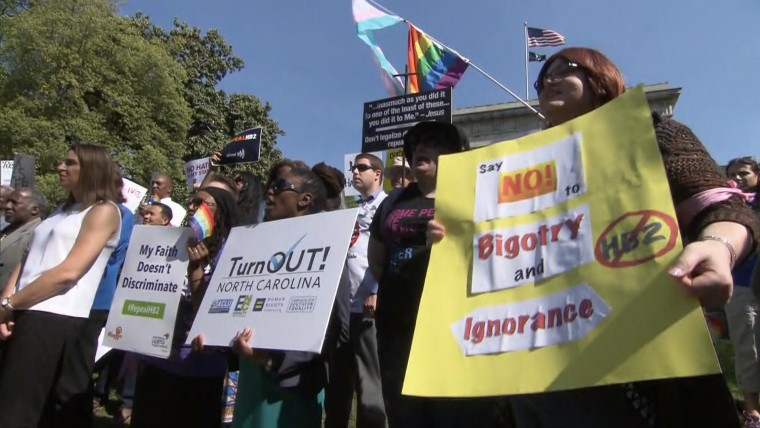Why MLB's All-Star game move absolutely should make the GOP nervous
“When Major League Baseball announced it was pulling the 2021 All-Star Game from Georgia in response to the state’s new restrictive voting law, Senate Minority Leader Mitch McConnell angrily slammed corporations, threatening them with “serious consequences.”
GOP officials are getting worked up over this issue for a very good reason: They know these types of boycotts have worked in the past.
“My warning to corporate America is to stay out of politics,” the Kentucky Republican said Tuesday, adding, “I’m not talking about political contributions.” The GOP told us that “corporations are people” — but apparently it wants these “people” to donate to its campaigns while shutting up when it comes to the GOP’s voter suppression laws in Georgia and beyond.
Other GOP legislators like Sen. Ted Cruz of Texas, Sen. Mike Lee of Utah and Rep. Jeff Duncan of South Carolina are planning to introduce legislation to strip the MLB of its antitrust exemption to punish the league for taking a stand on Georgia’s recent restrictive voting law. These Republicans appear angrier with the so-called corporate woke mobs than with the actual mob that stormed the Capitol on Jan 6. (All of the above Republicans voted to acquit former President Donald Trump for his alleged role in the attack.)
But these GOP officials are getting worked up over this issue for a very good reason: They know these types of boycotts have worked in the past to force Republicans to reverse course on significant measures.
The most recent and likely most instructive episode came in 2016, when North Carolina’s GOP-controlled state government enacted an anti-LGBTQ law that became known nationally as the “bathroom bill,” which prohibited transgender people from using bathrooms that aligned with their gender identity.
The backlash was swift. Soon after its passage, the National Basketball Association announced it was moving its 2017 All-Star Game, previously scheduled to take place in North Carolina, explaining that this new law was inconsistent with the NBA’s commitment to “diversity, inclusion, fairness and respect for others.”
Then-Gov. Pat McCrory, a Republican, slammed the NBA’s decision, claiming that “liberal media have for months misrepresented our laws” and “the selective corporate elite are imposing their political will on communities.”
These Republicans appear angrier with the so-called corporate woke mobs than with the actual mobs that stormed the Capitol on Jan 6.
These words are very similar to those of current Georgia Gov. Brian Kemp when he defended his state’s new voting law against what he called “lies from liberal activists,” warning that “partisan activists are coming for your business.”
That defense didn’t work for McCrory in 2016. Corporations canceled large events in the state, and performers like Bruce Springsteen and Maroon 5 refused to play shows there. PayPal scrapped plans to open an operations center in Charlotte that would have added an estimated $2.66 billion to the state’s economy. In all, The Associated Press tabulated, the boycott would cost North Carolina more than $3.76 billion in lost business.
With North Carolina losing revenue and sporting a PR black eye, guess what happened a year later, in March 2017? The GOP Legislature repealed the most objectionable parts of the law. And with that reversal, the NBA was back in the Tar Heel State in 2019 with its All-Star Game, bringing with it an estimated $100 million in revenue.
I’m betting today’s GOP leaders are also aware of two earlier controversies in Arizona, which has got to be adding to their angst over the prospect of a widespread sports-led boycott.
The first was in 2014, when the Arizona Legislature passed a bill that would have given business owners the right to refuse service to members of the LGBTQ community based on so-called religious grounds. After the bill passed, but before then-Gov. Jan Brewer, a Republican, announced whether she would sign it, there was again a swift backlash from sports leagues and corporations.
The National Football League, which had planned to hold the Super Bowl the following year in the state, indicated that if the bill became law, it would explore other locations. A growing list of companies soon began to condemn the law and threatened to withdraw business from Arizona, including American Airlines and Apple. The criticism was so deafening that Brewer ultimately vetoed the bill, declaring it was “broadly worded and could result in unintended and negative consequences.”
When that bottom line gets squeezed, how long until Georgia voters turn on their elected GOP officials?
Arizona had witnessed a similar backlash in 1990, when the state refused to recognize Martin Luther King Jr. Day as a holiday, which began to be observed as a federal holiday in 1986. In this case though, it was the voters of the state, not the Legislature, standing in the way by voting “no” on a 1990 referendum to honor MLK with a paid state holiday. (At the time, only about 3 percent of the state’s population was Black.)
In response, the NFL pulled the Super Bowl scheduled for 1993 from the state. In addition, people from Stevie Wonder to U2 led a charge to boycott. After this backlash, the holiday question was again placed on the ballot in 1992, where it passed with 62 percent of the vote.
More from MSNBC Daily
Must reads from Today's list
This is all to say the GOP has every reason to be freaking out about a wide-scale corporate backlash. When that bottom line gets squeezed and the average person feels the economic pain, how long until Georgia voters turn on their elected GOP officials — even if today they agree with the voting law?
Kemp might want to take a look at what happened to North Carolina’s McCrory, who defiantly stood his ground in 2016 against reversing that state’s anti-LGBTQ law: Come November, McCrory lost re-election to Democrat Roy Cooper. With Kemp up for re-election next year, I’m betting Kemp finds that more voters in Georgia prefer economic prosperity over suppressing the vote of people of color.“


No comments:
Post a Comment